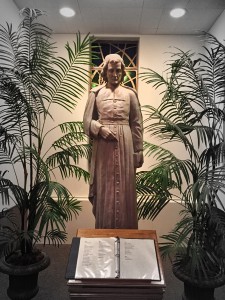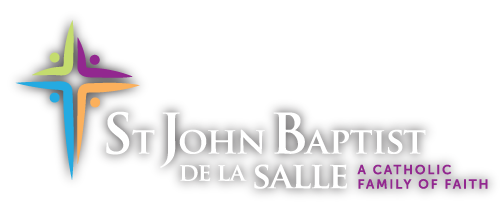Our Patron Saint – St. John Baptist de La Salle

St John Baptist de la Salle statue
John was born in Rheims, east of Paris in the heart of France’s Champagne country, he was an aristocrat by heredity, environment and education. The La Salle Family was as pious as they were prosperous, as is evident by the fact that three of his brothers became priests and one sister a cloistered nun.
At 18 he received his Master’s Degree and entered the Seminary of St. Sulpice in Paris the following year. When both his parents died within a year, John, the eldest child, returned home to care for his four brothers and two sisters.
John was 27 when ordained a priest. Two years later, he earned a doctorate at the University of Rheims. As a priest from a wealthy family, he was given a prestigious position at the Cathedral of Rheims. But he could not ignore the hunger, ignorance and despair of the poor.
The attitude of the time was that poor people didn’t need to know how to read and write. La Salle defied tradition and devoted forty of his sixty-eight years to providing a free education for the poor. He founded the Christian Brothers, an order devoted to teaching teachers how to teach. The Christian Brothers, without pay devoted themselves to teaching the poor. These teachers are among the most remarkable the world has seen. La Salle and his teachers pledged themselves to organize schools of free instruction even if they had to beg or live on bread alone to accomplish their goal. Through religious instruction and virtuous example, the Christian Brothers raised the moral level of the working classes. These schools for the poor were so popular that parents who could afford to pay for instructions, sent their children to schools intended for the poor.
Before La Salle, teachers were shown little respect. Many were poor, inefficient laymen who held two jobs. The Christian Brothers were the first to give serious attention to training teachers. They became the model for many other teaching congregations of men and women, and played an important role in the progress of public elementary education in Catholic countries.
La Salle established all levels of institutions for educating the young: a normal school for the Christian Brothers, four for training teachers in general, three practice schools, 33 primary schools and technical schools. He founded secondary schools for modern languages, art and science, and technical schools. He founded the first reformatory schools, and his humane and understanding treatment was centuries ahead of contemporary methods of dealing with young delinquents. He organized Sunday Schools for working boys who couldn’t attend classes on weekdays.
His program consisted of the three R’s, plus spelling and catechism. Math was taught by reason not by rote. To counteract the noise and confusion that was coming to classrooms of the day, he insisted on silence for good conduct and concentration.
Of his many innovations, the two most important reforms in education were group instruction and teaching French, rather than Latin. La Salle said it was far more important and useful to be able to teach French, it was also easier for children to learn and understand.
In contrast to his background, La Salle’s tastes and manners of living were Spartan. He imposed strict discipline and severe penance upon himself. To fulfill his mission to teaching, he renounced his riches. During a famine in 1684, he sold his property and gave the money to the poor. He died on Good Friday in 1719. In 1900, Pope Leo XIII canonized him a saint, and in 1950, Pope Pius XII declared him patron of all teachers of children and youth.

